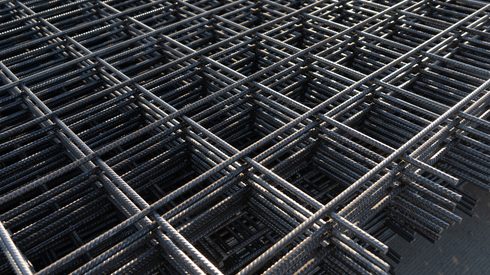The Mexican steel industry is betting on sustainability and decarbonization, not only as a commitment to environmental responsibility but also as a strategic move to reduce the country’s reliance on steel imports, particularly from China, industry leaders said on Tuesday March 25, during the ExpoAcero 2025 conference in Monterrey, Mexico.
Executives from major Mexican steel producers emphasized that investments in green steel production will strengthen local supply chains, improve competitiveness and ultimately replace imported products with domestically manufactured alternatives.
Sustainable investments to replace imports
Antonio Domínguez, director of projects at Deacero, highlighted the company’s sustainability initiatives, noting that 19% of the group’s energy consumption currently comes from renewable sources, with a target of reaching 60% by 2030.
Domínguez also pointed out that Deacero’s steel transport strategy significantly reduces CO2 emissions, with rail transport emitting only 20 grams of CO2 per short ton of steel compared with 140 grams per ton from truck transportation, curbing indirect emissions.
“In five years, we are investing $1 billion in a second steel plant and a rolling mill in Ramos Arizpe [in Mexico] to increase our production capacity from 1.5 million to 2.5 million tonnes. This will allow us to manufacture structural profiles of up to 27 inches, replacing imports from the United States and China,” Domínguez said.
Jorge Nieto, chief operating officer and chief technology officer of ArcelorMittal Mexico, underlined the company’s recent expansions, including a hot-strip mill that increased the company’s capacity by 2.5 million tonnes, with potential to reach 4.5 million tonnes. The company has also invested $80 million to expand its mining operations to ensure a sustainable, self-sufficient steel production process in Mexico.
“We are committed to growing in a way that allows us to integrate operations from raw material extraction to final steel production, reducing dependence on imports and change this ‘ugly’ history that mining has,” Nieto said.
Energy-efficient technologies, circular economy
Roberto Navarro, steel production manager at TYASA, detailed the company’s progress in energy efficiency.
“Our Quantum project has been our focus since 2014, with our electric-arc furnace [EAF] consuming only 295-300 kWh per tonne of steel produced, compared to the conventional 480-440 kWh [per tonne]. This results in emissions of just 0.20-0.26 tonnes of CO2 per tonne of steel,” he said.
Meanwhile, Oswaldo Ramírez, commercial director at Frisa, highlighted the company’s efforts in scrap recovery, currently at 50-55%, with plans to increase this percentage in the coming years.
“By improving our scrap recovery systems, we are not only enhancing competitiveness but also reinforcing a circular economy model that helps replace imported products and position our country in the future of global steel,” Ramírez said.
Fastmarkets’ most recent assessment for steel scrap shredded auto scrap, consumer buying price, delivered mill Monterrey was 7,300 pesos ($364.24) per tonne on Tuesday March 25.
Building a robust domestic steel sector
Industry leaders agreed that Mexico’s growing focus on green steel will help fortify the domestic steel sector while meeting rising demand in industries such as automotive and construction.
According to Salvador Quesada, director of the National Chamber of Iron and Steel Industry (Canacero), the industry has committed approximately $8 billion to investments aimed at increasing productivity and competitiveness.
“The Mexican steel industry has a highly skilled workforce, sometimes more so than in the US and Canada. To remain competitive, we need strong capital investments, and that’s exactly what we are doing to solidify the steel sector in Mexico,” Quesada said.
Find your competitive edge with Fastmarkets’ market-reflective price data and market analysis. Speak with our team to schedule a demonstration






